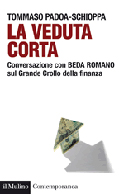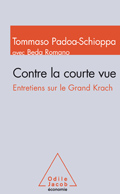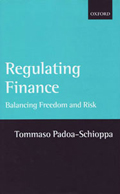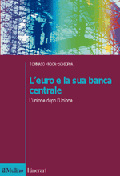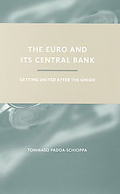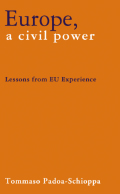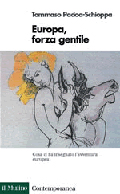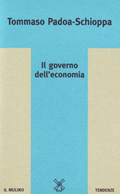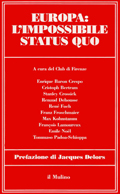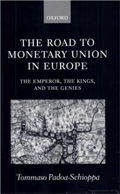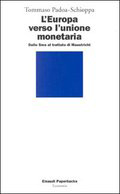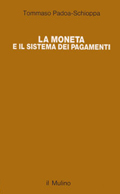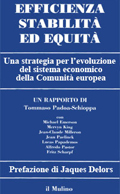
The EU and the Lisbon Treaty: A New Chance for Serbia?
One of the greatest Italian poets defines youth as the age in which ‘hope has a long span and memory a short one’. It is nice to see in this beautiful hall both people of my age, with a long span of memory, and people of the age of my children, who have a long span of hope. Although I could say that it is possible to have a long span of hope even at my age, the purpose of my remarks will be to instil in the younger part of this audience the sense that to work for a united Europe is a worthwhile objective and commitment.
For me, to be in Belgrade evokes long standing memories. I spent my adolescence in Trieste, at a time when the Iron Curtain surrounded the city at a distance of about 15km. Slovenia, whose capital can now be reached in an hour from Trieste, then seemed as distant as Vladivostok. So this part of Europe is to me strongly linked to memories of a gone past. I was in high-school in Trieste when, in March 1957, our Professor of History and Philosophy commented over the school internal radio about the signing of a treaty, which is now known as the Treaty of Rome. This treaty, he said, was creating a community; the intention was to unite six countries and form a common market.
The question of memory is a tricky one, because to lose one’s memory means to lose the ability to learn from mistakes, but if we are too deeply prisoners of memory, we will not be able to go beyond mistakes. I think that there is a need to both remember and forget. I speak for the six founding members of the EU, but of course I’m speaking also for this part of Europe.
Today’s seminar follows a conference organized yesterday by Notre Europe – the research centre based in Paris that Jacques Delors created in the mid-90s, which he chaired for ten years and which I now chair. Yesterday’s conference was entitled “Beyond the Wall” and it proceeded from a critical analysis of the diverging paths of Central Europe and the former Yugoslavia since 1989. My remarks today will be focused more on European politics and institutions, and on the relationship between the EU and the Western Balkan countries.
I speak with a double awareness. Firstly, anybody not from this part of Europe, should approach this region with great humility and the sense that the problems and the dramas are here so complex, so difficult, that no one from the outside – and maybe very few from the inside as well – should pretend to understand them in full. Secondly, in approaching the dilemmas of this region one should be aware that almost all of the vocabulary which we use when discussing the EU needs a careful use and some new thinking. I refer to words like “union”, “federation”, “identity”, “nation”, “sovereignty”, “state” and even “political” (what is political and what is something else?).
With these two remarks in mind, let me speak briefly about what is this EU that Serbia is approaching. I would define the EU as a union in the making. The word “union” means both to be united and to be in the process of becoming united – and the EU is a union in both these meanings. To describe what a union is, I often use the archetype of the condominium. Typically in a building live a number of families which did not choose each other. Often they don’t especially like one another, but they all have to run the condominium because the building has individual apartments and common parts, and the common parts they have to manage together. If they don’t do so, if the roof gets broken and they don’t fix it, the building will sooner or later be destroyed by the snow or by the rain. If the elevator is out of order and they disagree on how it should be repaired, they will have to walk the stairs. By the way, in my own experience, it is no easier to manage a condominium than the EU, maybe even more difficult.
What are the key elements of a union, of any union? They are three: the common goods, the ability to decide, and the means to act. The first element is the mixture of individual parts and common parts; you want to be free to do whatever you want in your own apartment, yet you shouldn’t be too loud as the noise can be heard in other apartments, particularly if the building is not of very high quality sound insulation standards. Second, for the common parts you need an ability to take decisions; and this ability is tested when opinions differ between those who would like to rebuild the elevator in wood and those who would like to have it done in glass or metal. The third thing you need are the means and resources to implement the decisions taken.
If we use the condominium archetype for the European Union, then we can see that in some aspects the European Union is a union in the sense of being united, while in other aspects it is a union in the sense of being in the process of becoming united. The union exists when the three elements are present. This is the case, broadly speaking, in the economic arena; it is fully in place for monetary matters; it is there in competition and trade. However, the three elements are not present in other fields in which too there is a common good at stake: security, external relations, internal security.
The common goods of the Union are fully recognised. If you read the European Treaties, you will notice that virtually all the items defining the res publica in a normal constitution of a normal state are declared to be common goods of the European Union. This includes human rights, protection of the environment, social solidarity, external security, justice, etc. Therefore the missing elements lie in the ability to decide and in the resources necessary to implement decisions.
The ability to decide is crucial. Whenever the rule for deciding is unanimity, there can be no decision taken, because unanimity is never reached. The essence and the paradox of a union, of any union, lies in the ability to decide when there is disagreement, namely when there the recognition that the good is common is accompanied by divergence of views as to the preferred way to assure this common good. To realise this paradox means achieving the Union and to achieve the Union means removing the rule of unanimity: when this happens, it means that you consider and accept the fact that your view of what is the best way to pursue the common good is less important than the need to have a single course of action. This is the Union that Serbia is approaching and hopefully will join.
The paradox of the Union that I have now described probably evokes for many of you similar paradoxes and dramas that you have gone through in recent years.
Let me now move to the following question: what is the moment that the European Union is facing, what is the state of the union that Serbia is approaching? It is, I think, a moment of fundamental change. The impression we get from what makes the headlines in the press is that the main events of these weeks are the entry into force of the Lisbon Treaty, the appointment of a new Commission, the beginning of a new legislature of the European Parliament coinciding with the celebrations of the twentieth anniversary of the Fall of the Berlin Wall. All this is important. However, the phase of change in the Union goes beyond these events. It is a phase in which the challenges and the raison d’être – the reason to exist – of the Union are becoming predominantly external, are no longer internal.
When the Union started in the 1950s, there was no overriding specific external objective for the project. The essence of it was to build a lasting peace amongst the initial group of six founding countries and to eradicate the possibility of war between France and Germany. Even the Euro, which came 40 years later, was conceived in a totally inward-looking way. I was part of this process: in the crucial years from 1988 to 1992, and then again in 1998, I never once participated in significant discussions about what the external role of the Euro should be. The objective of the Euro was to consolidate a single market with a single currency in order to avoid fragmentations and the resurgence of protectionism if one country were to devalue dramatically its currency. There was no project for the Euro to become an international currency, or to replace the Dollar, or to take a big share in international monetary affairs.
The inward-looking phase, in which the dangers were coming predominantly from within, is concluded in many respects. But remember that nothing is irreversible… Being here, one can’t forget that for my grandparents 1909, namely 100 years ago, was a year of peace in a Europe in which no passports were required to travel across frontiers, and there was absolutely no idea that five years later the tragedy would begin… So it can go, as you have seen yourself in this region.
The challenges today are mainly external: the financial crisis, the risk of a prolonged period of slow growth, the resurgence of protectionism, climate change, security – all these problems have a predominantly external dimension. And these are the areas in which the Union is still in the making, not really completed.
What does this mean for the relationship between the Union and Serbia and for the attitudes you, in this country, need to define – your own attitudes towards the EU? The experience of past enlargements tells us that what makes the attraction towards the EU almost irresistible are its achievements. Most achievements of the Union are in the areas where the Union means being united and not going through the process of becoming united. In the jargon this is called acquis communautaire, referring to what has already been acquired in terms of unification.
Here comes the key point. If ‘acquiring the acquis’ were the sole reason for attraction and if there were no equal attraction for what is yet to be done, there would be disappointment and maybe even backfiring in the union dynamics. There are countries (I don’t want to name them here) which have joined the Union with the idea that what has already been united was excellent but that nothing else should be further united afterwards. And so they see their mission in the Union as consisting of stopping every further development in the process of becoming united. This is catastrophic for the Union and it is catastrophic also for the accession countries.
The union is a dynamic process which is not completed yet. And it does need to be completed in order to fulfil its promises and to justify the aspirations of those who have a long span for hope. To look forwards is better than to look backwards because if one looks backwards one sees plenty of lost opportunities, both on the side of the Union and on the side of this region of the Western Balkan.
What a comparison between the process of Western Europe after World War II and the dynamics at play in the Balkan region after World War III (if I may call the Cold War that way) tells us? After World War II the Marshall Plan provided immense support to the countries of Western Europe, with some conditions attached. One of such conditions was that the recipients
should cooperate amongst themselves in order to manage the aid and that democracy should be restored without infringement of its principles. Europe was divided; a European federation was the dream of few. Looking now at the Western Balkan region, one sees countries which were caught by the end of World War III in a state of union; indeed Yugoslavia was a federation. “Federation” is a word to be handled with great care. In the European Union a federation is a possible end point of the process of uniting Europe and many are allergic to the word, whereas here, there was a federation and what followed the end of the Cold War was the disintegration of it.
I don’t think that the European Union can lecture on what should have happened in the Western Balkans in the post Cold War years; the EU did not help in averting the tragedy. However, I would say that the part of the Union which did not help in avoiding the tragedy was the part in which it was not a union. Different EU member countries had different agendas and different attitudes towards the Balkan region and this strongly contributed making the tragedy greater rather than smaller.
Today, joining the EU is seen by many, and I think rightly so, as the way forward, as the way out of the tragedies of the last twenty years.
The Notre Europe’s researcher who conducted most of the work for the “Beyond the Wall” symposium of yesterday, interviewed a number of people in this region and reported to me of a sentence pronounced by one of her interlocutors when talking about the relationship between the EU and Serbia: “A bad doctor for a difficult patient.” I think this is a very good description. It is not because the doctor is bad that you can do without. Maybe the reason why the doctor is bad is that he is himself sick, and often has the same illness that the patient. So my conclusion is that we must try to improve the relationship between the bad doctor and the difficult patient. The patient must be aware of his own illness but perhaps he must help the doctor in finding the right treatment for both. Thank you.




